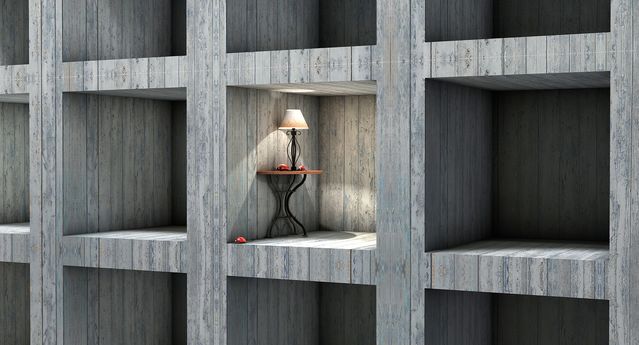Personality
How to Find a Personal Spot to Relax Body and Mind
Personality is connected to the choices we make about physical locations.
Posted March 4, 2017

According to valid media reports, President Donald Trump is not all that excited about the idea of spending time at Camp David, the rustic presidential retreat nestled in the wooded hills near Thurmont, Maryland. http://www.cnn.com/2017/03/03/politics/trump-camp-david/index.html First used by Franklin D. Roosevelt in 1942, it is fair to say that not all presidents had a fondness for it. President Reagan liked it a lot and spent more time there than any other president, but Barack Obama was not a frequent visitor.
This presidential preference – a minor news story in the grand scheme of things – highlights a much broader issue in psychology. How do we make decisions about locations? What factors are involved in making choices about the geographic spots we like to spend time in?
Many of us are passionate about our climate and landscape preferences. Would you like to live in a big city on one of the coasts or in a smaller rural community in the Midwest? Do you prefer the beach, mountains, or desert on vacation? We also have opinions on man-made interior spaces. Do you feel more comfortable facing the door in a restaurant? Maybe you need to be by a window? Do you like the lights dim or bright?
Our preferences for both large and small places reflect our personalities. There is some evidence that introverts, more than extroverts, prefer the mountains. And wide open spaces are more satisfying to extroverts.
Sam Gosling, at the University of Texas, studies how we make identity claims in the places we live. Socially outgoing people tend to display more photos of people in living spaces than do shy and reserved individuals. When you put a bumper sticker on your car or get a tattoo you have made a choice from thousands of possibilities but you selected that one. Why? Like the preferences we have for people, our physical and space preferences represent an expression of underlying personality traits. For example, would you prefer a secluded forest retreat in the hills of Maryland or a luxurious mansion on an estate in Palm Beach, Florida?
In his wonderful personality science book, Me, Myself, and Us, psychologist Brian Little discusses the mental health function of restorative niches. We need to find places, or create spaces, that allow for the true expression of our personalities. If you are introverted you might need to find a quiet area that allows your overstimulated system to come back down to closer to a resting baseline. In contrast, extroverts may actively seek out environments where people will engage with them. That is how they gain a sense of satisfaction. Most of us are ambiverts, somewhere in between the two extremes. That means we sometimes crave social interaction, but other times we need to retreat.
Researchers like Jason Rentfrow and Richard Florida have each done fascinating work in the area of geographical psychology. Both have demonstrated that cities and geographic areas have different personalities. For example, cities in the northeast show higher average neuroticism scores, California is laid back, and there are more agreeable and warm people in the upper-Midwest. The connection between personality and place is a two way street. The geographic areas we live in help to make us who we are. Also, we are drawn to specific areas because of who we are.
Every day we experience an ongoing collision between the physical world and our always changing psychological worlds. The resulting interaction helps to shape our identity and gives rise to our sense of psychological well-being. Every human activity – behavioral, emotional, psychological – takes place in the context of physical space. That is why it is important to talk about.
References
Bennett, K., Gualtieri, T., & Kazmierczyk, B. (2018). Undoing solitary urban design: A review of risk factors and mental health outcomes associated with living in social isolation. Journal of Urban Design and Mental Health, 4:7.


